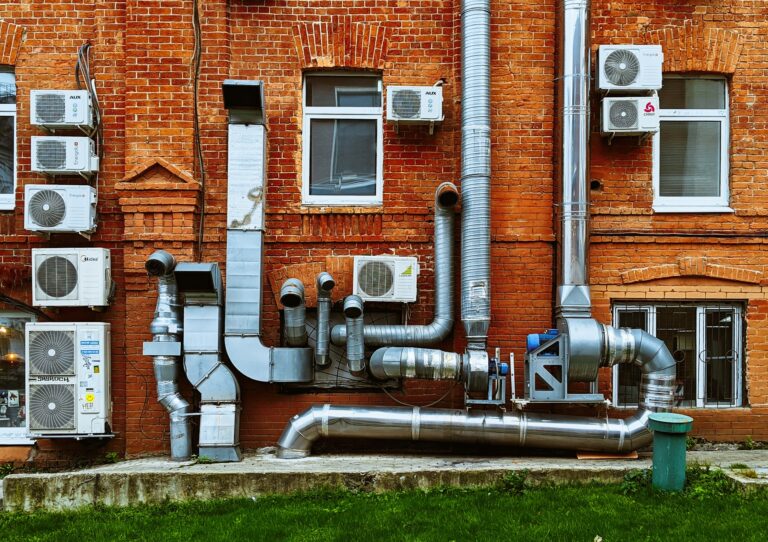Selecting an HVAC system for your home is a significant decision. The system not only plays a pivotal role in your comfort but also in your home’s energy efficiency and your overall environmental impact. With numerous factors at play, from the size of your space to the energy efficiency rating, making an informed choice is crucial.
By following these guidelines, you can rest assured that your new HVAC system will not only provide optimal comfort but also keep energy bills in check. Plus, with the convenience of shopping from the comfort of your own home via shop.broan-nutone.com, the process couldn’t be easier. So, sit back, relax, and let this guide help you make the best decision for your home and your wallet.
Understanding HVAC Systems
Before you make your purchase, take the time to understand the basics of HVAC systems. HVAC stands for Heating, Ventilation, and Air Conditioning, and it’s what keeps our indoor climate comfortable year-round. Central HVAC systems usually consist of:
- A central furnace that heats air and distributes it throughout your home
- An air conditioning unit that cools the distributed air in the summer months
- A ventilation system that exchanges indoor and outdoor air
- Ductwork to transport the cooled or heated air from the inside unit to the distribution outlets
- A control system, such as a thermostat, to regulate the temperature
Being familiar with these components will help you discuss options with HVAC professionals more confidently and ensure you choose a system that’s truly comprehensive for your indoor environmental needs.
Size Matters: Picking the Right System Size
HVAC systems come in various sizes, and choosing the right size is critical. A system that’s too small will struggle to keep your home at a comfortable temperature, while a system that’s too large will lead to unnecessary on-off cycling, reducing its lifespan and wasting energy.
The ideal size for your home depends on a range of factors, including square footage, ceiling height, insulation, window size, and climate. A professional can perform a load calculation to determine the unit capacity needed to maintain your home’s comfort. Avoid the one-size-fits-all approach and opt for a tailored sizing recommendation that matches your home’s specifications.
Energy Efficiency and Ratings
When it comes to HVAC systems, energy efficiency is synonymous with long-term savings. The efficiency of a heating or cooling system can be reflected in various ways, including the Seasonal Energy Efficiency Ratio (SEER) for air conditioners and the Heat Seasonal Performance Factor (HSPF) for heat pumps. The higher the rating, the more efficient the unit is.
For furnaces and boilers, Annual Fuel Utilization Efficiency (AFUE) measures the efficiency. For gas furnaces, a higher AFUE means less wasted energy and higher cost savings. Look for systems with reputable ENERGY STAR ratings to ensure you’re getting a product that meets strict energy efficiency guidelines.
Considering Environmental Impact
With growing concerns about climate change, selecting an HVAC system with a lower environmental impact is a responsible choice. High-efficiency systems not only reduce your carbon footprint but also qualify for various tax credits and rebates, making them more economical in the long run.
Technology such as geothermal heating and cooling, which uses the constant temperature of the earth, is gaining popularity due to its minimal environmental impact and long-term savings. Discuss with your HVAC professional the green options that might be suitable for your home and location.
Types of HVAC Systems
The climate you live in will dictate which type of HVAC system is most appropriate for your home. Here are the common types of HVAC systems:
- Split systems are the most popular, consisting of an outdoor unit and an indoor unit, typically a furnace or air handler.
- Packaged heating and air consist of one outdoor unit that houses both the heating and cooling components, making them ideal for homes with limited indoor space.
- Ductless mini-split systems are great for homes without existing ductwork and allow for zoned heating and cooling, which can increase the system’s efficiency.
- Hybrid systems combine the energy efficiency of a heat pump with a furnace, switching between the two to optimize comfort and energy savings.
By evaluating your home’s needs and the benefits of each system type, you can determine the most suitable option for your household.
Installation and Maintenance Considerations
The installation of your HVAC system is as important as the system itself. Select a reputable, certified HVAC contractor who can ensure proper sizing, installation, and ongoing maintenance. Poor installation can reduce system efficiency by 30% or more.
Maintenance is also key to the longevity and performance of your HVAC system. Regularly changing filters, cleaning the system, and scheduling professional tune-ups can prevent breakdowns, maintain energy efficiency, and provide peace of mind that your system is operating safely and at its peak.
Choosing the Right HVAC System for You
Choosing an HVAC system for your home is a complex decision that requires careful consideration of various factors. By understanding the components, sizing, efficiency ratings, environmental impact, system types, and installation and maintenance requirements, you’ll be able to select an HVAC system that provides optimum comfort and savings for years to come.
Remember to involve professionals in the process, from load calculations to the final installation, to ensure your new HVAC system aligns with your home’s specific needs. It’s an investment in your home’s environment, comfort, and future, so take the time to make the right choice.


